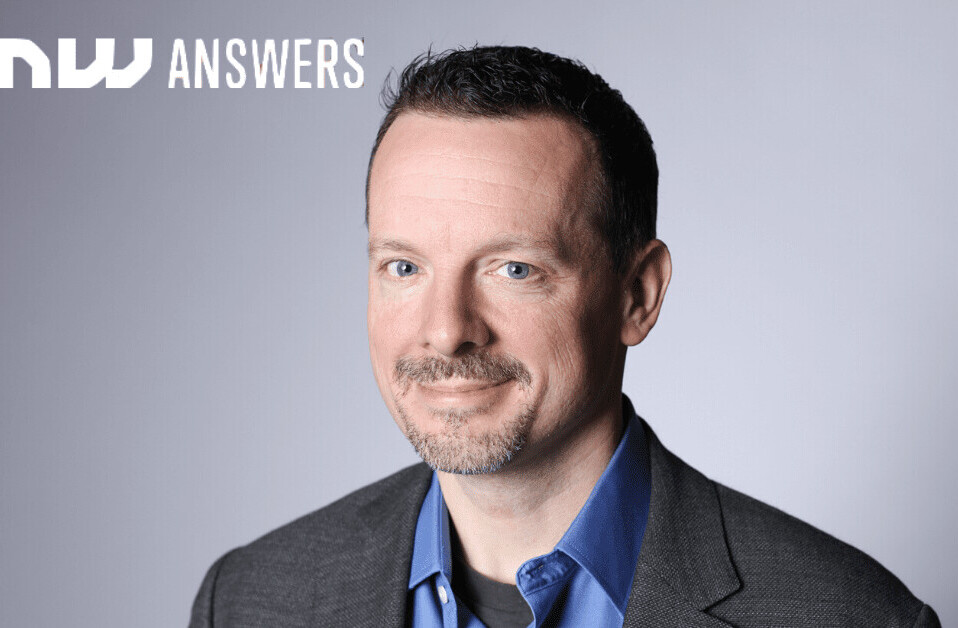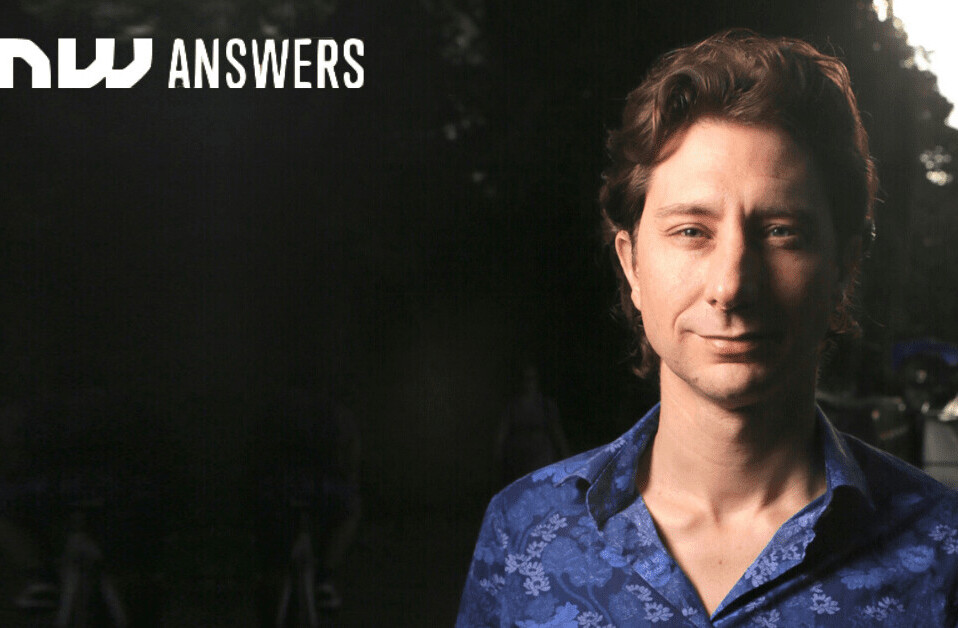
You’re not special — everybody fails.
The importance lies in how you react to failure, and learning to bounce back after you’re fired, you lose a client, or your high tech sex toy company idea gets shot down.
TNW Answers is our live Q&A platform where we and our readers can interview leaders and disrupters from across the STEM industries. This year, we’ve had 30 TNW Answers sessions, hosted by leaders, disruptors, and expert panels from fields including cryptocurrency, beauty tech, cannabis, space exploration, new media art, and much much more.
For this article we’ve pulled together some of the things we’ve learned this year from our brilliant hosts on how they handle professional setbacks and failure, and what they regret.
“You will be screwed and you will be humbled”
Adeo Ressi, the CEO of the Founder Institute, a startup launch program that operates in nearly 200 cities worldwide, once wrote: “As an entrepreneur, you will be screwed and you will be humbled. Over and over again.” When asked how first time entrepreneurs should prepare for that, Ressi replied:
“Entrepreneurship is very hard. The Founder Institute works to help condition entrepreneurs for success, which is one way to prepare. The best thing that you can do is believe in yourself and believe in your mission. No matter how hard things become, when you believe, anything is possible.”

Give yourself a break
During our TNW Conference this year in Amsterdam, we were incredibly lucky to have Danielle Wood, Assistant Professor of Media Arts and Sciences at MIT Media Lab, not only speak, but also join us for a TNW Answers session. Wood spoke a bit about her experience entering the STEM field:
“As an undergraduate student studying engineering, I sometimes failed tests and felt like I did not understand concepts in class. My advice to everyone, especially girls, is that you do not judge yourself harshly when you struggle academically.”
“Instead, ask for help from friends, teachers and mentors; try things again even if they were hard the first time. And look for someone who can explain the challenging math or science concept in a way that makes sense for you.”
What Vimeo’s CEO regrets
Anjali Sud, CEO of Vimeo, was another speaker at this year’s TNW Conference — her talk was titled “How to completely change the course of your company in 90 days.” She also joined us on TNW Answers.
When asked what mistakes she made when she joined Vimeo, Sud replied: “Not moving fast enough.”
“In particular, I wish I had moved faster to re-organize our internal teams to align with our refocused strategy on creators. It took me a few months to get there, when looking back I think we could have ripped off the bandaid and made those changes faster.”
At the young age of 34, Sud is credited with completely transforming Vimeo’s business practice. She’s often spoken in interviews about how there’s never a right moment to undergo massive change, but it often has a big pay off.
When asked whether she applies this same philosophy to other areas of her personal and professional life outside of Vimeo, Sud replied:
“I think change is hard and scary, no matter if it’s in your personal or professional life. But there are times when you know in your gut that change is needed. You have the signals that the status quo isn’t working. When that happens, I always try to be willing and ready to change.”
“The harder thing is when you aren’t sure it’s time to change. In these moments, I try to bring it back to the higher purpose. When thinking about Vimeo, I ask ‘what is the right thing for our users? What is the best way for us to fulfill our mission to empower creators?’”
“When thinking about myself, I ask ‘what is the right thing for me? what will make me happy, challenged and fulfilled?’”
What to do when people want you to fail
Starting a new project is difficult enough, but what do you do when everyone thinks it will flop?
A surprising number of our TNW Answers hosts this year went through that very same thing, leaving us wondering if “doomed” and doubted projects, companies, and products are more resistant to failure.
Kenny Ewan built Wefarm, the world’s largest farmer-to-farmer digital network. It connects more than half a million farmers in an effort to create a network of knowledge that can help local farmers be successful.
When asked if there was any resistance from local farmers to join, Ewan replied: “We do see farmers that have some hesitancy about joining, or Qs they want to know about the system before they do, but i think this is very healthy and to be encouraged.”
“Many farmers struggle to believe that it is a completely free system, often because they have been taken advantage of before. But we spend a lot of time building trust in our brand and our most powerful voice is word of mouth recommendation. We also make it very easy for a farmer to leave if they don’t like it… but fortunately this is very rare!”
Socrates Rosenfeld, the CEO of iheartjane, an online cannabis marketplace, and former Apache helicopter pilot and US Army Ranger, talked about the inherent struggles that come with working in the cannabis industry, but was ultimately optimistic
But when asked how his company deals with America’s political and cultural resistance to marijuana, he replied, “As entrepreneurs, we see obstacles as opportunities and believe that if we can execute with accountability and legitimacy within regulation — that we will succeed. We can do well by doing good.”
Share — and celebrate — your mistakes
Ultimately, we are are own worst critics. So how do you move past mistakes and moments of failure?
During our Women Disrupting Tech in Europe panel, Rixt Herklots, Program Manager of The Next Women, said: “Own of my biggest challenges is celebrating my accomplishments. As a matter of fact I rarely do it, but being transparent about failures? Oh yes! There’s so much value in sharing your mistakes & missteps. Everyone should do it.”
In our most recent TNW Answers session, we asked Arlan Hamilton, CEO and Founder of Backstage Capital, why people are so proud to share their applications were rejected from Backstage Capital on social media. She answered: “I think Backstage is part of a movement and not just a venture fund, a studio or an accelerator.”
“I think we are part of a community of people who have long been overlooked, undervalued and underestimated, and they’re not standing for it anymore. So we try to treat everyone with respect, and that respect is recognized and appreciated, and comes back to us. It’s cyclical. And it’s a mutual dignity.”
Not everything we make will succeed, and accepting that is a part of eventual success. Sharmadean Reid, co-founder of beautystack, a beauty booking platform that empowers independent beauty professionals to make money, shared insight into why you need to push past failure and just make something: “No one’s gonna die if I release this and it’s a bit bad.”
“It’s so noisy out there, they probably won’t notice. It’s best to get things out. you’ll never learn if you don’t ship product. I release the first version of beautystack months ago to a small group of 10 people just to get some feedback. It was so ugly it was embarrassing! But we found out quickly what worked and what didn’t. You need to build, ship, test and learn.”
Looking ahead
2019 will hold many successes, as well as many failures. Take this time to reflect back on 2018, and learn from mistakes.
Until then, we’ll continue to look to leaders and disruptors, such as those featured on TNW Answers, for guidance and perspective.
Have an idea for someone you’d love to host a session? Post in the comments below or email georgina@thenextweb.com.
Get the TNW newsletter
Get the most important tech news in your inbox each week.




